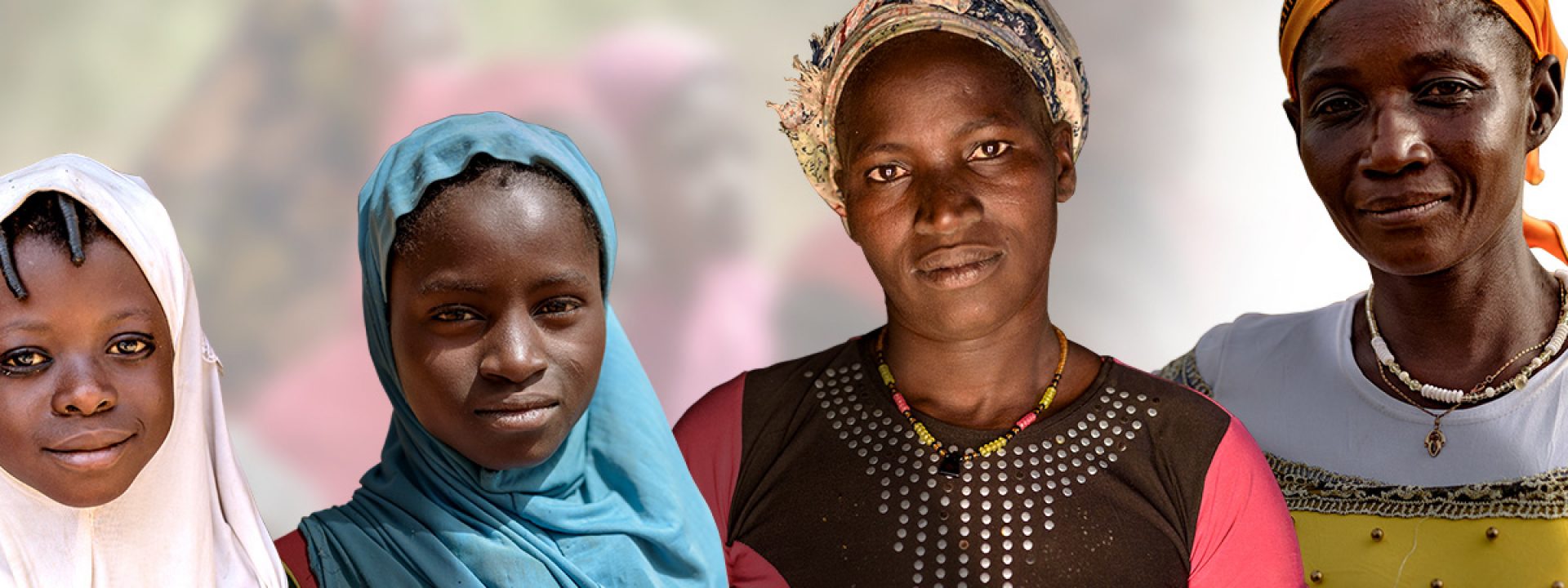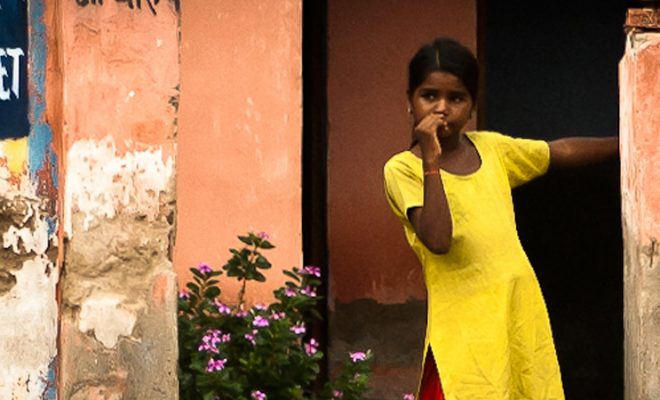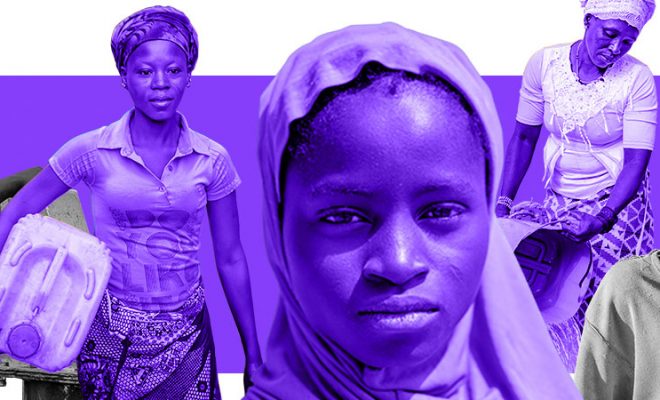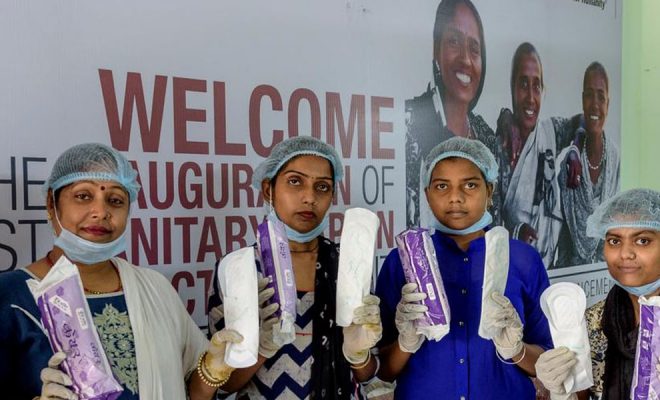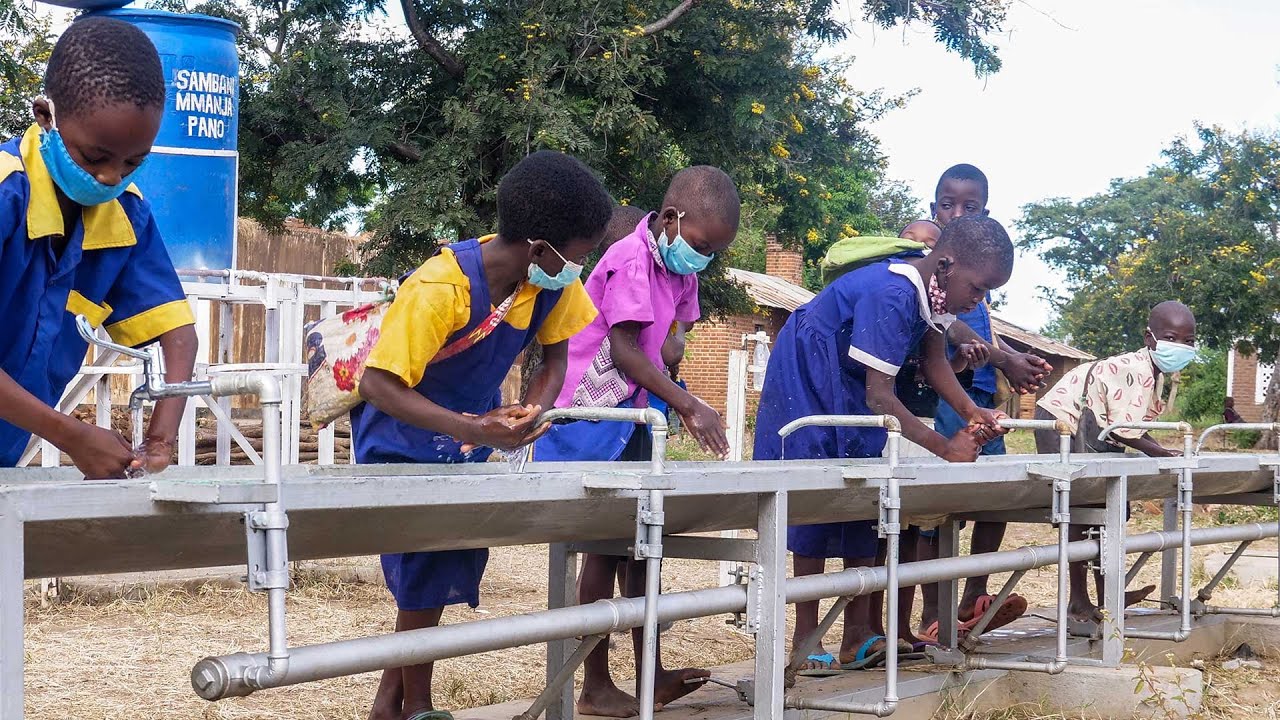
What teenage girl would attend school with menstrual blood on her hands or uniform? In these cases, embarrassment and anxiety are reasons enough to refrain from attending school. This is the case in many economically weaker communities where schools lack safe sanitation facilities and offer no guarantee of privacy for female students.
The problem goes beyond the lack of privacy in latrines: girls need dedicated spaces to wash and dry their clothes and sanitary napkins if they have access to the latter at all. In reality, few schools in the most deprived areas, especially rural ones, have such spaces. Women rarely have access to personal hygiene products, either because they are unavailable in stores or unaffordable.
Menstrual health and hygiene are necessary conditions for school WASH (Water, Sanitation, and Hygiene). The consequences of these failures show one of the most devastating aspects of gender inequality. According to UNICEF, in some African countries, female students miss an average of four days of school per month during their menstrual cycle, and in South Asia, between three and four days, equivalent to 20% of annual school attendance time. In the worst cases, irreversible school dropout often occurs in cultures where menstruation is also associated with a lack of knowledge and taboos. This is one of the factors contributing to the fact that, worldwide, 22% of teenage girls do not attend school, are not employed, and receive no training of any kind, compared to 12% of boys of the same age.
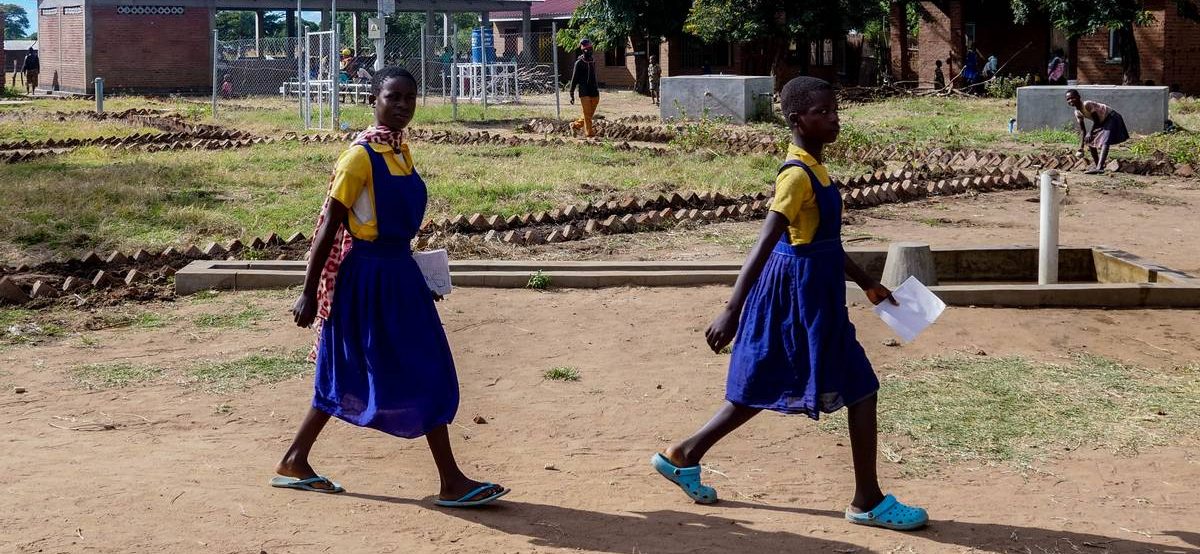
In a new project in Malawi, we address menstrual hygiene and education in schools as a comprehensive and irreplaceable element of any approach to access to water and sanitation. © UNICEF
A pioneering project in Malawi
In Malawi, we are collaborating on a project with UNICEF in four schools with a gender-sensitive approach to the entire sanitation cycle: access to water, safe and private latrines, hand-washing facilities, dedicated spaces for female students, appropriate menstrual health education and affordable access to feminine hygiene products.
The project is being implemented in the peri-urban area of the district capital of Lilongwe and the rural area of Chikwaw. On average, there is one latrine for every 150 students in the schools, which is insufficient and one of the causes of their deterioration: many of them are clogged, and it is the students, untrained in their operation, who are in charge of cleaning them, often as a punishment imposed by teachers who also lack any training.
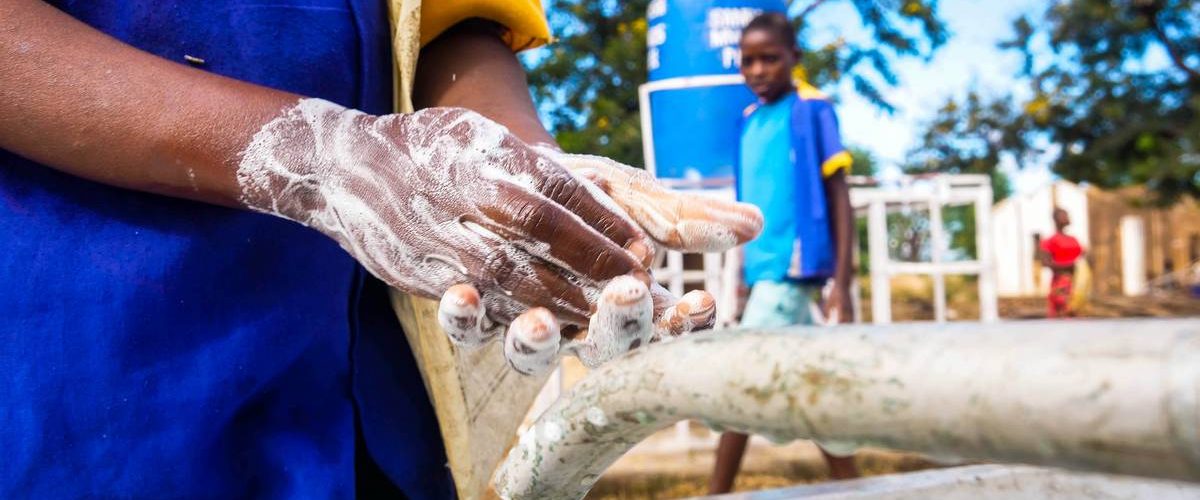
Handwashing is essential to guarantee the health of schoolchildren. © UNICEF
Access to solar-powered water and safe private latrines
There is no sanitation or hygiene without clean water. Around the schools, access to water is uncertain, as the water table has dropped due to recurrent droughts in recent years and is unreachable for the Afridev hand pumps that are commonly used in the area, as these can only draw water at a maximum depth of 45 meters.
Therefore, the first step of the project is to restore the supply and the only possibility is to use mechanical pumps. Solar-powered pumps are being installed to avoid using expensive and polluting fossil fuels; this is a more straightforward and sustainable system in terms of maintenance.
In the latrines, dedicated spaces are being built for the girls to manage their menstrual hygiene; they will have running water, a door that can be closed from the inside, and a drying rack to wash and dry sanitary napkins and clothes.
The teachers, adequately trained in sanitation, will pass on their knowledge to the students so that they can use and maintain the latrines correctly, thus ensuring sustainability from one year to the next.
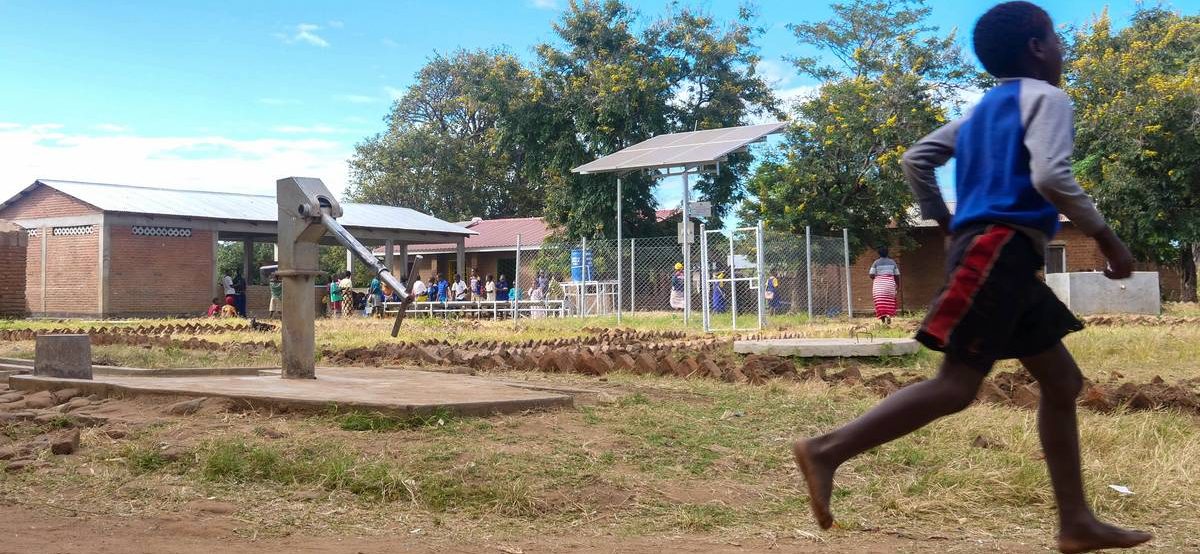
There is no sanitation or hygiene without clean water. © UNICEF
From school to community: no shortage of sanitary pads
But the availability of water and privacy does not fully solve the girls’ problem if they do not have adequate absorbent products. One of the project’s objectives is to replace gauze, which is common in the communities, with reusable sanitary pads, which are much safer and widely accepted in Malawi, unlike the menstrual cup, which is still rejected.
But the pads are not of sufficient quality or are not affordable for families. With this project, we are taking a further step in conceptualizing the ultimate goal of sanitation in schools. In addition to safe and private latrines, girls must be able to access menstrual hygiene products.
This is often a severe problem in many developing countries with a lack of knowledge about menstrual hygiene. To address this, a key factor is to implement market fairs to promote these products, make them popular in the communities and create a reliable and continuous supply chain.
At the Foundation, we are fully aware of the importance of access to effective feminine hygiene products in advancing gender equality. In India, where some 113 million girls leave school at puberty, we developed a project to set up a Sanitary Pad Manufacturing Unit in a run-down neighborhood of Haiderpur, in the state of Haryana. There, some 50,000 women benefited from the availability of these products, in addition to many who found a job opportunity close to home.
Menstrual health education, the key to complete sanitation
In Malawi, 82% of girls know nothing about sexual health and menstruation before their first cycle, and many are unaware of its existence when they experience it. Once they reach puberty, they still have very little accurate physiological information in their community, as there are many taboos about it. Some of these taboos are widespread in many rural communities in Africa and South Asia: they will die if someone sees the blood, it can be used in witchcraft practices, it ruins crops, etc. Also, when menstruating, they often suffer harassment and mockery from their peers, who are unaware of the issue or have a culturally distorted view.
The project aims to achieve a profound change in the educational approach. The training of boys is essential for the results achieved with their peers to prosper in the future. It is also crucial that mothers and teachers have access to scientific and health information to ensure a change in cultural patterns regarding menstruation and sexual health.
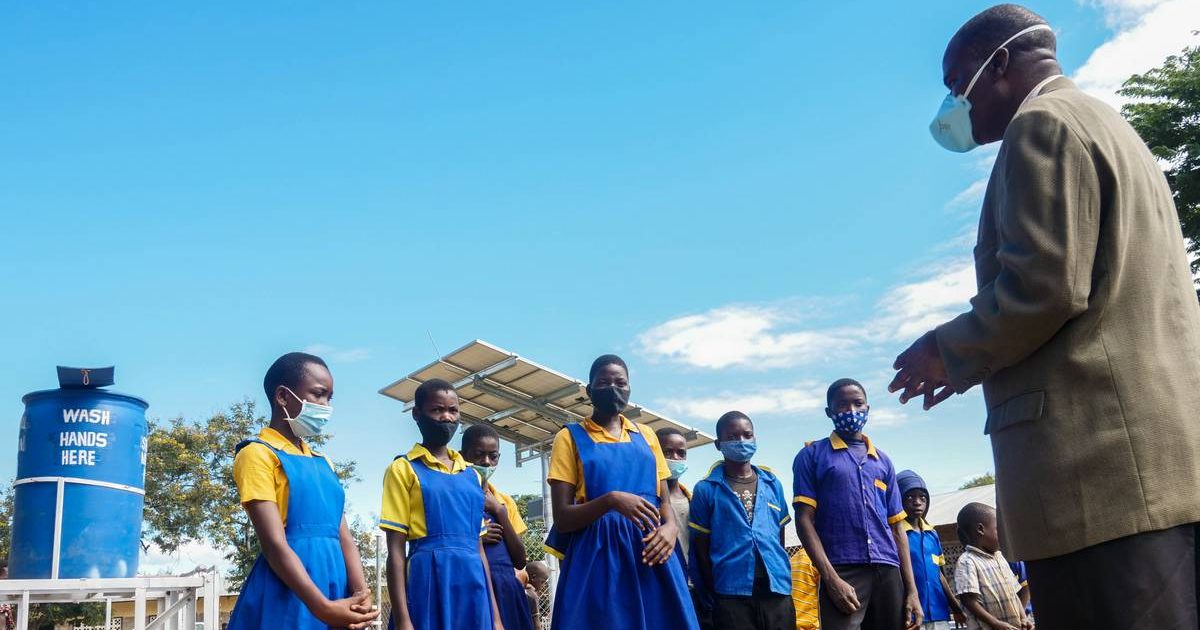
In Malawi, 82% of girls know nothing about sexual health and menstruation. The project aims to achieve a profound change in the educational approach. © UNICEF
A replicable model for Malawi, Africa, and the world
According to the World Bank, Malawi is the eighth most impoverished country in the world. This is reflected in the fact that, according to PCM data, in schools, more than 16% of schoolchildren, some 1.3 million, have no sanitation facilities, being forced to defecate in the open during school hours, and more than six million have no handwashing facilities.
The project’s ultimate goal is of paramount importance: to achieve a replicable model in peri-urban and rural contexts, the most problematic ones, so that it can be extended to other areas of the country and the rest of the world. Many SDGs are directly involved in this.


